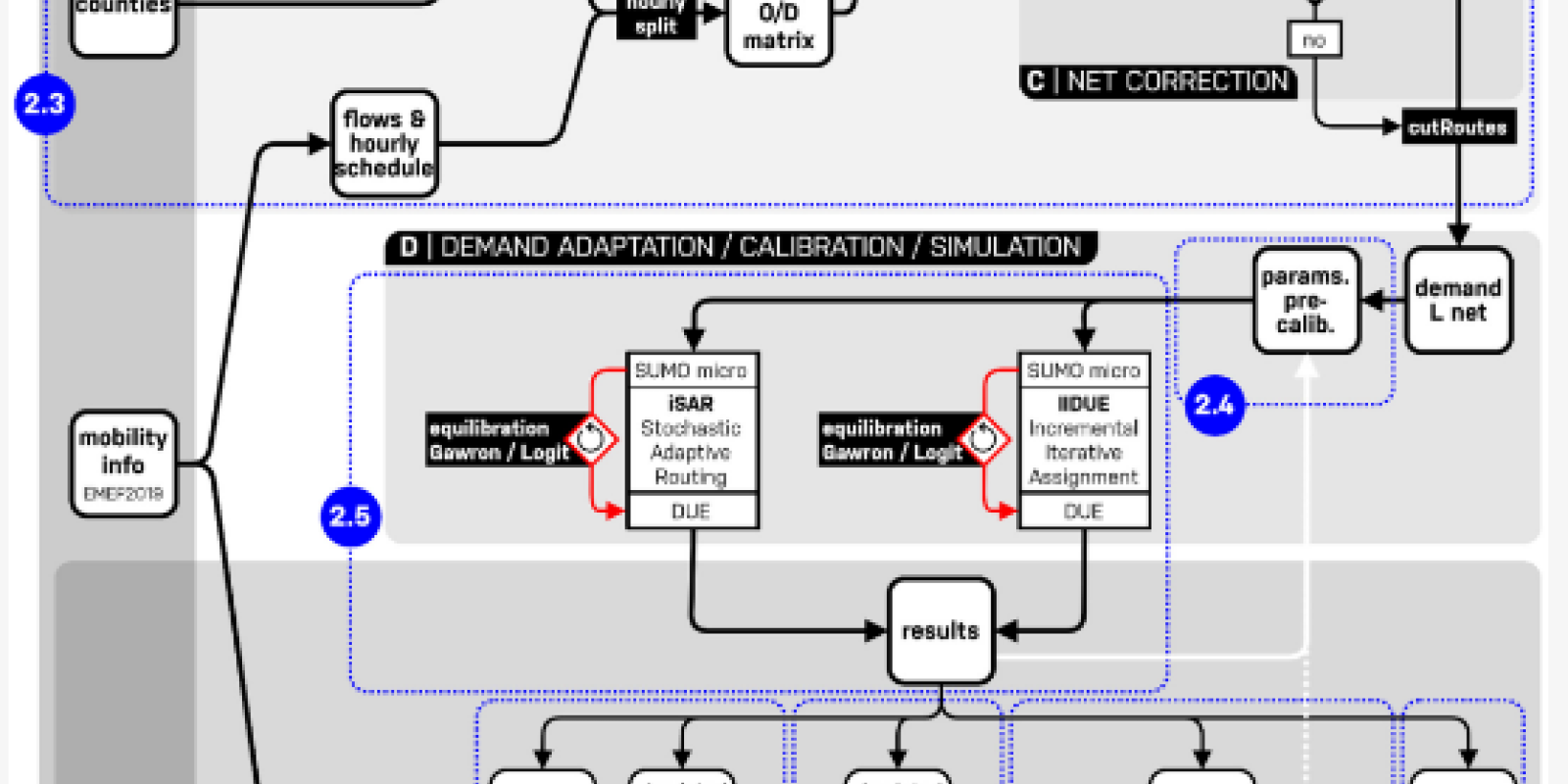Getting Real: The Challenge of Building and Validating a Large-Scale Digital Twin of Barcelona’s Traffic with Empirical Data

Large-scale microsimulations are increasingly resourceful tools for analysing in detail citywide effects and alternative scenarios of our policy decisions, approximating the ideal of ‘urban digital twins’. Yet, these models are costly and impractical, and there are surprisingly few published examples robustly validated with empirical data. This paper, therefore, presents a new large-scale agent-based traffic microsimulation for the Barcelona urban area using SUMO to show the possibilities and challenges of building these scenarios based on novel fine-grained empirical big data. It combines novel mobility data from real cell phone records with conventional surveys to calibrate the model comparing two different dynamic assignment methods for getting an operationally realistic and efficient simulation. Including through traffic and the use of a stochastic adaptive routing approach results in a larger 24-hour model closer to reality. Based on an extensive multi-scalar evaluation including traffic counts, hourly distribution of trips, and macroscopic metrics, this model expands and outperforms previous large-scale scenarios, which provides new operational opportunities in city co-creation and policy. The novelty of this work relies on the effective modelling approach using newly available data and the realistic robust evaluation. This allows the identification of the fundamental challenges of simulation to accurately capture real-world dynamical systems and to their predictive power at a large scale, even when fed by big data, as envisioned by the digital twin concept applied to smart cities.




